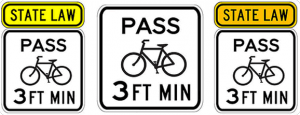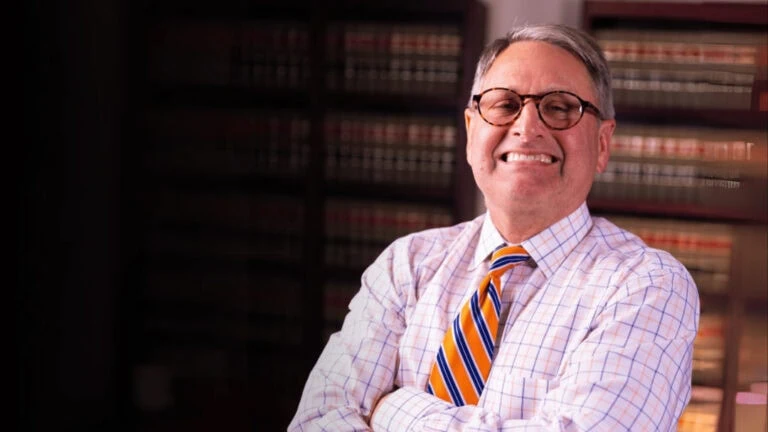 Most cyclists admit that they have been frequently fearful while riding their bicycles. In the 2012 National Survey of Bicyclist and Pedestrian Attitude and Behavior compiled by the National Highway Transportation Safety Administration, it was reported that about 1 out of 8 cyclists felt their personal safety was threatened – on their very last bike ride.
Most cyclists admit that they have been frequently fearful while riding their bicycles. In the 2012 National Survey of Bicyclist and Pedestrian Attitude and Behavior compiled by the National Highway Transportation Safety Administration, it was reported that about 1 out of 8 cyclists felt their personal safety was threatened – on their very last bike ride.
Of those who felt threatened while riding their bikes, 83% blamed motorists. How did the motorists behave to act “threatening” to cyclists? In the 39% of the instances, the motorists “drove very close” to the cyclists. Cyclists commonly call this “being buzzed.”
What is the most common reason why bicyclists are injured? BEING HIT BY A CAR. This accounts for 29% of all injuries. At least 23 states have now passed a law to cite and fine motorists who fail to give cyclists enough room, or who drive “very close”. Usually, these laws mandate that motorists give cyclists a cushion of 3 feet when passing. There is some variation in the law in certain states. In Virginia, cyclists are allowed only a 2 feet cushion. In New Mexico, they are granted 5 feet. These safe passing laws has been passed with a very important motivation – to improve the safety of cyclists, as they try to interact with motorists on roads which are often too narrow for both to travel side-by-side within the same lane of travel. There have been numerous deaths caused to cyclists around the country, when they were hit by motorists attempting to pass too closely. The 3 foot law is designed to make passing be more safe. The penalty for violating the 3 foot Law in the state of Florida is a civil penalty typically entailing a monetary fine. The law requires motorists, who are passing the slower moving cyclist, to give the cyclist a cushion of safety of at least 3 feet between the vehicle and the bicycle.
Florida 3 Foot Law Not Being Enforced
Bicycling advocates in Florida celebrated when our 3 foot law was passed and became law. But in many ways, the Florida 3 foot law’s potential benefit has been obfuscated by its lack of enforcement. At the very least, the law seems to be enforced selectively – certain Florida counties issue many more citations than other counties. Consider the following: In the 5 years from 2006 thru 2010, only 337 tickets were issued in the entire state of Florida for violating the 3 foot law. In Duval County (Jacksonville), how many tickets have been written in the past 4 years for improper passing of a cyclist? NONE. How about Tampa (Hillsborough County)? 16 citations were issued in these 4 years. Miami-Dade motorists were issued 45 citations for improper passing of cyclists. Orlando (Orange County) motorists were also cited 45 times. Yet, I know, from my law practice, that these unsafe passing accidents are happening regularly. For example, I have represented five cyclists, who in 5 separate incidents, were hit by the passenger sideview mirror of fast-moving vehicles. All these cyclists were riding on State Road A-1-A, along the coast of Florida, on different dates. On at least two occasions, the motorists didn’t even stop.
Other States Follow Suit with 3 Foot Law
Unfortunately it is not just Florida where the safe passing law has been ignored. Around the country, cycling advocates complain about the lack of apparent interest of law enforcement (download PDF of Rutgers 3-foot law study). For this reason, some cyclists have created ways to memorialize their own encounters with unlawful motorists.
Some bicycle advocates oppose the 3 foot law. They feel the law is too difficult to enforce, and that the safe distance for motorists passing cyclists is not always 3 feet. They claim that when road speeds are high, a safe passing distance would be greater than 3 feet. They also claim the law has not caused a noticeable change in drivers’ behavior. Some cycling advocates even claim that cyclists are partially to blame for the frequency of passing with less than 3 feet. They claim that cyclists too often ride “in the gutter” when they should be “taking the lane”, and causing motorists to move well over into the next lane to pass.
Cyclists Have Rights
At least in the case of a crash, there should be no difficulty with law enforcement issuing a citation. Often, police officers claim they could not write a ticket because they didn’t personally see how close the car and bike came to each other. But when there is a crash, the officer didn’t have to see it. The evidence of an impact between bike and car is compelling and obvious. By definition, the car must have tried to pass with less than 3 feet – less than zero feet! The issuance of a citation would assist cyclists in protecting their legal rights.
Moreover, I believe the law promotes another critically important message to all road users – cyclists have the right to be on the road! Too many old-school drivers of vehicles still think cyclists should be on the sidewalk.
Christopher G. Burns is a Terrell Hogan partner attorney who has defended the rights of injured cyclists for 30 years. He is the chairman of the Jacksonville Bicycle Pedestrian Advisory Committee, and a past officer and board member of the Florida Bicycle Association.
$831,000 Verdict
Slip and Fall
$1,100,000 Settlement
Defective Product
$1,300,000 Verdict
Medical Malpractice
$600,000 Verdict
Construction Accident
$1,700,000 Verdict
Defective Product
$750,000 Verdict
Defective Product
$1,500,000 Verdict
Auto Accident
$3.3 Million Verdict
Asbestos / Mesothelioma
$3.5 Million Settlement
Defective Product
$17 Billion Settlement
Tobacco Injuries
$370,000 Recovery
Auto Accident
$3.3 Million Settlement
Bicycle Accident
$810,000 Recovery
Auto Accident
$260,000 Verdict
Motorcycle Accident


